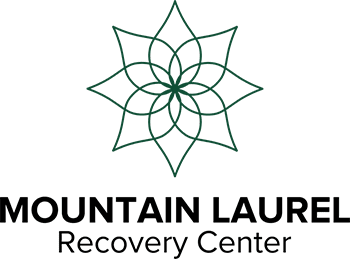Relapse is a common challenge many are faced with while in recovery, and it can be devastating for the individual and their loved ones. Relapse can occur for many reasons, including triggers, stress, or underlying emotional or psychological issues that were not fully addressed in treatment.
While relapse is a possibility for anyone in addiction recovery, it is crucial to understand that relapse is nothing to fear; it does not mean failure, and it can be an opportunity to learn and grow as part of the recovery journey.
Ten Tips for Preventing Relapse
Certain behaviors, habits, and mindsets can reduce the risk of relapse and help you achieve long-term sobriety. If relapse does occur, simply reach out for support and use the resources you have to move forward.
The following ten tips can help reduce your risk of relapse in recovery:
- Attend support group meetings regularly. Groups like Alcoholics Anonymous (AA) or Narcotics Anonymous (NA) can provide a sense of community and support to help you stay sober.
- Avoid triggers. Triggers can be people, places, or situations that remind you of substance abuse and make you want to use again. It is important to identify triggers and avoid them whenever possible.
- Practice stress-reducing activities. Stress is a common trigger for relapse, so practicing stress-reducing activities like meditation, yoga, or deep breathing can help you manage cravings more effectively.
- Build a strong support system. Having a strong support system of friends, family, and other individuals in place during recovery can provide you with encouragement. Communicate with your support system regularly, and tell them what signs of potential relapse to watch for so they can hold you accountable.
- Develop healthy habits. Eating a healthy diet, exercising regularly, and getting enough sleep can help improve your overall well-being and reduce the risk of relapse.
- Keep busy. Boredom can be a trigger for relapse, so staying busy with hobbies, work, or volunteering can help you stay focused and motivated.
- Keep a journal. Writing down thoughts and feelings in a journal can help you process emotions and identify triggers or patterns that may lead to relapse.
- Practice self-care. Engaging in self-care activities like meditation, massage, or a relaxing bath can help with reducing stress.
- Have a plan. Having a plan in place for how to handle triggers or stressful situations can be essential for preventing relapse. Your plan can include steps to take if a relapse does occur, which may include returning to treatment.
- Hold yourself accountable. Regular check-ins with your sponsor, therapist, or another trusted individual help you stay accountable and focused on your recovery goals.
Recognizing the Signs of Relapse
The signs of addiction relapse can vary depending on the individual and their specific addiction, but there are some common signs to look out for, including the following:
- Sudden changes in behavior, such as isolation, withdrawal, irritability, or mood swings
- Constantly thinking about using drugs or alcohol or having intense cravings
- Reconnecting with old acquaintances or hanging out with people who are still using drugs or alcohol
- Neglecting self-care, such as not maintaining good hygiene or getting enough sleep
- Reacting with anger when confronted about relapse or denying that there is a problem
- Having depressed or anxious thoughts or acting impulsively
If relapse occurs, do not think you have failed in your recovery. The first step in getting back on track is to accept that you have relapsed and forgive yourself. Denying or ignoring the situation will only make it worse. You will want to reach out to your support network, including friends, family, or a sponsor. In addition, you can do the following:
- Attend support group meetings to hear encouraging accounts of how others have dealt with relapse and moved forward
- Seek out professional help from a therapist or addiction specialist
- Contact the recovery center where you initially received treatment
- Reflect on the factors that led to your relapse
- Develop coping mechanisms to manage triggers when they arise
- Remember that recovery is a journey, and setbacks are a natural part of that process
We Are Here to Help
Are you or a loved one struggling with a substance use disorder? At Mountain Laurel Recovery Center, we are here to help. We can determine what treatment options are right for your specific needs and put you on the path to a lasting recovery. We offer a holistic approach to treatment and use a variety of services, including residential treatment, medically monitored detox, family program, and extended care services. To find out more about what programs and services are available in our Pennsylvania recovery center, please contact us today.
